#lúthien
Text


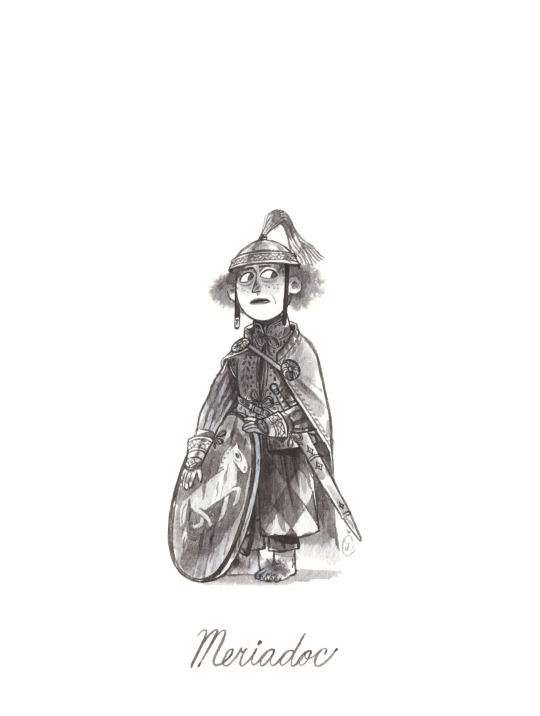
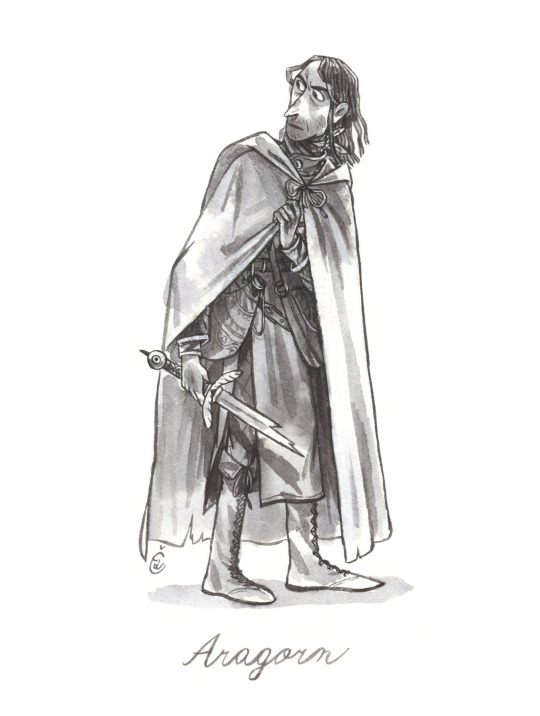
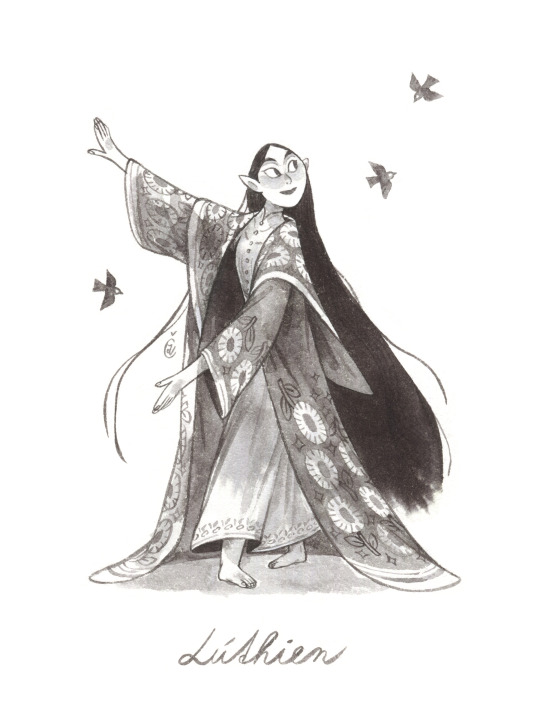

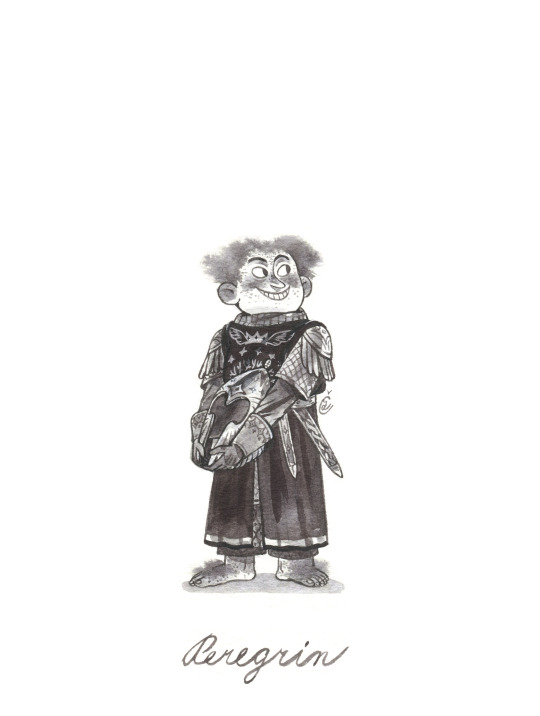
Continuing with the LOTR series! ⚔
Also, I’ve decided I'll be selling the originals after I finish all the drawings (that means after Easter). But if there is any character you'd like to have in particular you can start reserving them now. By messaging me here or on [email protected] :^)
All reserved!
The prices are from 50 to 80USD (shipping included).
And same as last year with the dog drawings this year also all the earnings will be sent to charities.
Thank you! 🌿
#my art#illustration#ink#traditional art#character design#tolkien#pippin took#merry brandybuck#boromir#lotr#aragorn#saruman#uruk hai#lúthien
2K notes
·
View notes
Text

By Moonlight in Neldoreth Forest by Ted Nasmith
#lúthien#neldoreth#forest#forest of neldoreth#neldoreth forest#moonlight#art#lotr#lord of the rings#the lord of the rings#middle earth#jrr tolkien#tolkien#j.r.r. tolkien#ted nasmith
4K notes
·
View notes
Text
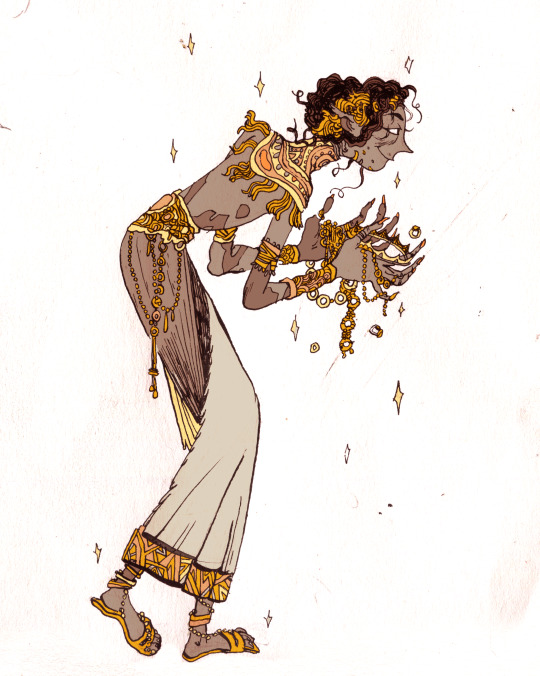
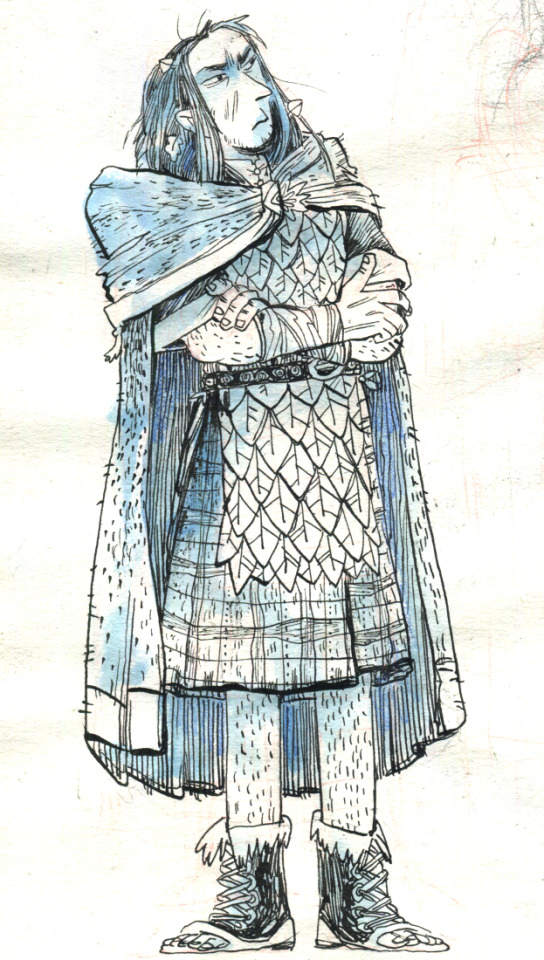
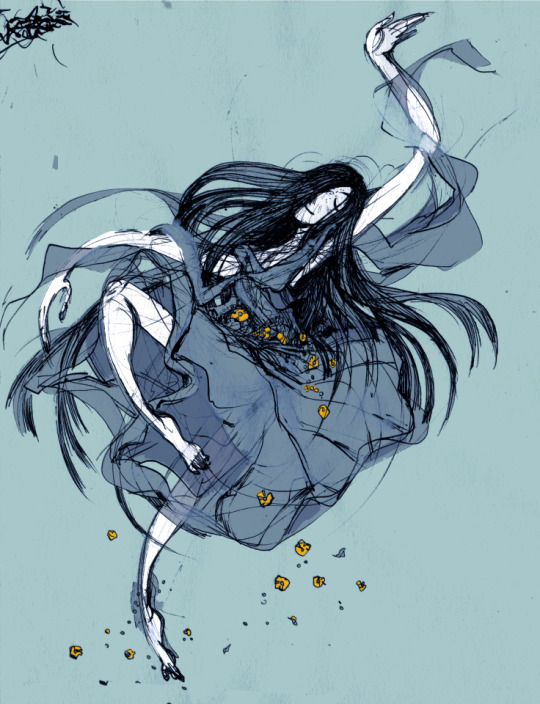
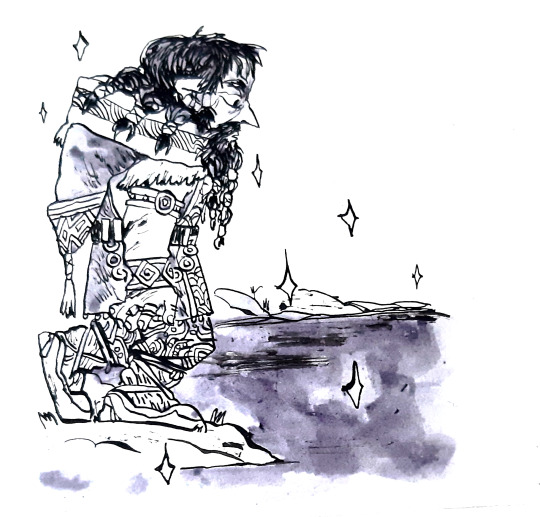
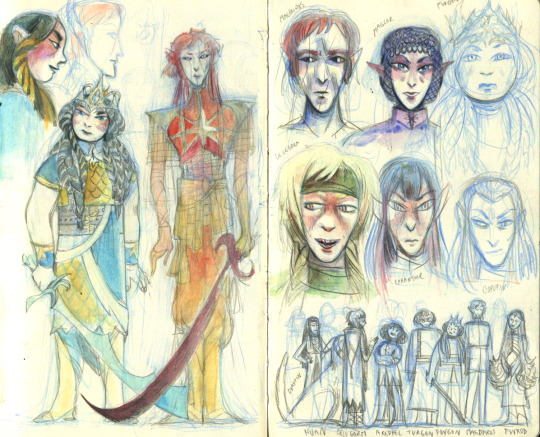
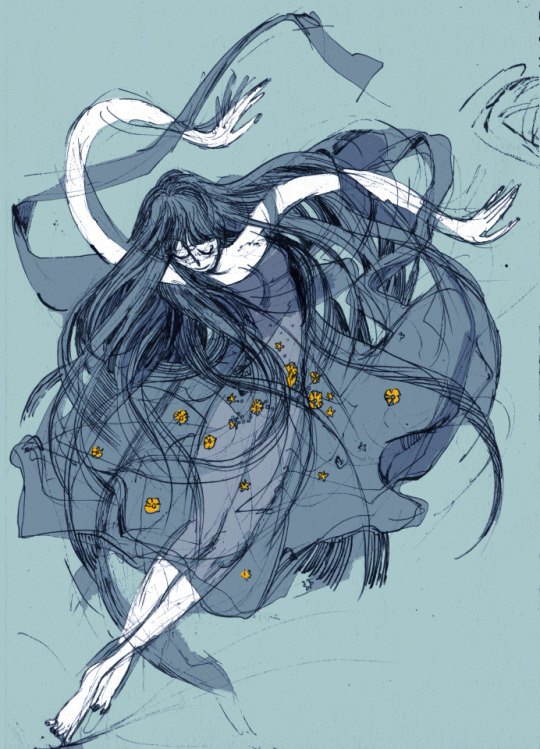
x_x
spamming random Silmarillion doodles :
Annatar ( I love drawing jewels ♥ )
Túrin in Doriath armor ♥
Wild Lúthien
Dúrin and Mirrormere
Finweans (It was 2 a.m., I was waiting for a friend, I had to draw beautiful elves to stay awake x_x)
More of wild Lúthien ♥
1K notes
·
View notes
Text


I honestly never posted on tumblr before but I am welling to give it a try.
I drew Lúthien and Sauron, though I am planning to redraw him in the future (maybe in a different pose) I am proud of how his clothes came out. Anyway maybe yeah might draw more of my favourite bbg Sauron in the future
418 notes
·
View notes
Text


Lúthien, little lover & elven jocks
By Cami | morchlav
#beren and lúthien#tolkien#the silmarillion#lotr#art#fan art#fantasy#character design#lúthien#luthien#luthien tinuviel#beren and luthien#beren erchamion#huan#celegorm#curufin
2K notes
·
View notes
Text
Poor Grandpa Thingol
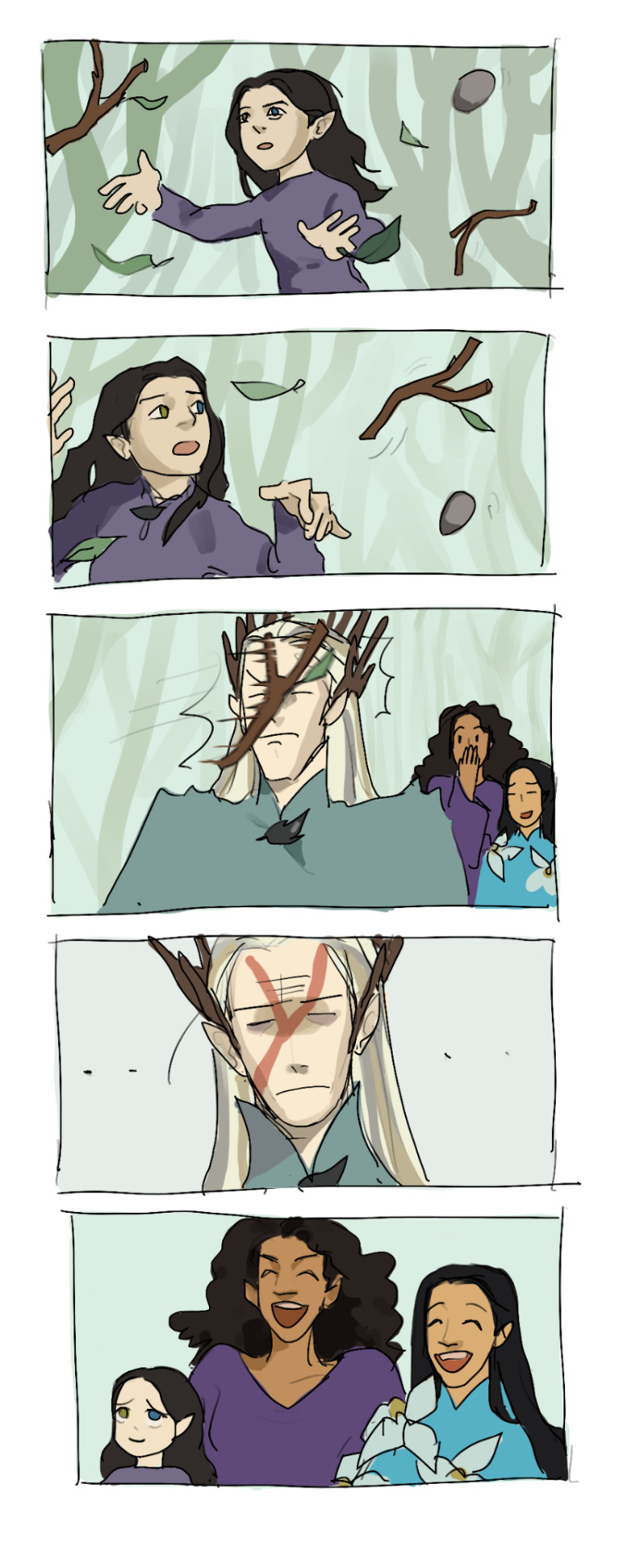
@nailsinmywall thank you ever so much for this 🥺 – one of Lú’s (@luthriel-tinuviel) childhood troubles with her magic.
The family got the worst of it 🤣
Poor grandpa Thingol – with a sore face and head for a few days 😂😂
#nailsinmywall#tolkien elves#eunoiawrites#the silmarillion#silmarillion#the silm#silmarillion oc#the silm fandom#tolkien oc#middle earth#lúthien#Lúthriel#melian#thingol#elu thingol#tolkien#silmarillion fanart#Silmarillion oc#Lúthriel Tinuviel#lúthien tinúviel#Daughter of beren and Lúthien#Twin sister of Dior#doriath
195 notes
·
View notes
Text
I’ve read some criticisms that Beren doesn’t listen to Lúthien and keeps trying to leave her behind even when she’s proven herself capable … and I’m like … are you even aware of Beren’s life story?
This man has lost everything he’s ever loved.
He had to part ways with his mother and sister for their safety, and then came back from a hunt to find his entire clan brutally murdered, including his father. He tracked down those responsible to take revenge and get his father’s ring back, because what else could he do? What purpose did he have without his family and his comrades? What was the use when the enemy was hunting him down 24/7? While his survival instincts won out, he was still a man who had no hope, afraid of love and attachment after what he’d lost, completely alone and isolated for years.
Then he met Lúthien. And she made him want to live. She gave him something to fight for: her. He found a new purpose, a new dream: he could be her husband, he could give her love and a family, happiness and freedom, everything she deserves.
He invoked Finrod’s promise to his father just so he could achieve his new goal…and how did that turn out? His entire group of helpers got captured and killed, because of him, including his dear friend. Every time he gets attached to someone in the heat of danger, he loses them. Every time. The poor guy must feel like he’s cursed.
And suddenly here’s Lúthien, in the middle of Sauron’s fortress, targeted by the sons of Fëanor, vowing to follow him into the lion’s mouth to end all lion’s mouths that is Angband.
And Beren just…can’t bear it. She is his hope, his light, his love, his Tinúviel…he can’t let that “curse” on him affect her. He can’t drag her into further danger when that has spelled doom for everyone else he’s loved. Not when the enemy has proven time and again that he can and will conquer everyone Beren cares for, no matter how strong.
He pushes her away not because he doesn’t respect her, but because he does.
He insists that she go back to Doriath and he go on alone, NOT because he thinks she can’t handle herself - he knows her far too well to believe that - but because he can’t lose her too.
#beren x luthien#beren and luthien#lotr#jrr tolkien#lotr books#lord of the rings#the silmarillion#first age#tolkien legendarium#luthien#lúthien#beren#beren erchamion#luthien tinuviel#lúthien tinúviel#beleriand#finrod#finrod felagund#barahir#sons of feanor#sauron#thangorodrim#tolkien couples#angband
64 notes
·
View notes
Text
I am not of the belief that there actually is a best minstrel among the elves. Like...music is such a broad and varied art that you may compare Maglor and Daeron, but that would be like comparing the sea and the forest; they both play beautifully and with great skill and inspire their people, but their arts come from different cultures and backgrounds.
And Lúthien has an ethereal nature due to her heritage which makes her music beautiful and powerful, yes, but does that make her a skilled minstrel or a singer with a beautiful natural voice and an inherent connection to the Music and the world that channels it? Could you truly compare her to anyone else?
There are other minstrels, I know, but I find myself thinking how interesting it is that it's such a debate as to which one's the greatest (of course, I do find the arguments interesting and I do really enjoy reading them) when music is something that is very subjective.
Like, an opera singer and a jazz singer use very different techniques to get the sound they want out, and to invoke the emotion they want. If you had a master of opera and a master of jazz, I don't think you could directly compare them - except if you had a preference for one or the other type of music.
And I think (from a Watsonian perspective) the idea of a Greatest Elven Minstrel is very political - it's almost as if to show that this elven side is still better than the other, culturally at least, because their music is better etc. etc.
#vague rambling about music#I was on a singing course at the end of July and by god there were some amazing singers#but like...I don't think you could have said which one was the unequivocal *best*?#maybe it's an elven thing - I honestly wouldn't put it past elves to have a way of determining skill at music#in some objective way#Daeron#Maglor#Lúthien#Silmarillion#Tolkien
178 notes
·
View notes
Text
One of the most striking and consistent features of Tolkien’s works is that the people who think they’re the hero of the story never are.
In The Hobbit, Thorin & Company (less Bilbo, who feels lost and out of place continually) think they’re the heroes of a story where they kill Smaug and regain their kingdom and treasure - and then Smaug is killed by Bard, a character who isn’t even introduced until the moment of Smaug’s attack. And Thorin decides that the person responsible for the death of Smaug, without whom Thorin would have no treasure and also be dead, is his enemy. Self-appointed heroes tend not to like it when someone else displaces them from their role in the story.
In The Lord of the Rings and The Silmarillion, the pattern recurs again and again and again, both with some very sympathetic characters and some outright villainous ones. We see it in characters who are jealous for prominence and position, but also in some who mean well and have concluded that all the burden of saving/protecting the world lies upon them. The common thread is the conviction that the world will only be saved if people do what the self-appointed hero wants, how they want it, when they want it, and - in the most severe cases - only if they specifically follow and offer their support to the hero in doing it. If someone isn’t backing up the hero, they are assumed to be not contributing.
Boromir: “those who shelter behind us give us praise…much praise but little help.” ‘Doom’ he interprets as “the doom of Minas Tirith.” And, later, when the Ring has gained more hold on him: “How I would drive the hosts of Mordor, and all men would flock to my banner!”
And Denethor: “Yet the Lord of Gondor is not to be made the tool of other men’s purposes, however worthy. And to him there is no purpose higher in the world as it now stands than the good of Gondor.” Later falling to, “I will not step down to be the dotard chamberlain of an upstart!”
Neither of them are fundamentally ill-meaning; both of them fall prey to the idea that they are the world’s only hope of standing against Sauron, and break under that burden.
Less well-meaning, but nonetheless only gradually corrupted until near the end, is Saruman: “hindered rather than helped by pur weak or idle friends”. Again, he percieves himself as the only chance of defeating - or controlling/manipulating - Sauron.
And more cases in The Silmarillion, of characters who have determined that they are the hero and following their lead is the contribution that counts. Fëanor and his following, and indeed the Noldor in general, going to Middle-earth to overthrow Morgoth, and deciding that anyone who does not back them is idle or cowardly or traitorous. Túrin, who again and again insists that if you are not doing things the way Túrin wants, you are not doing anything. Watch in particular for the repeated theme that dissent=cowardice.
Fëanor: “Say farewell to ease! Say farewell to the weak!…Let the cowards keep this city!” And “If Fëanor cannot overthrow Morgoth, at least he delays not to assail him, and sits not idle in grief.” And “fainthearted loiterers.” And “needless baggage on the road.” It is worth recalling that the Valar are not as idle as Fëanor thinks, and their largest contribution prior to the War of Wrath - the creation of the Sun - is a major blow to Morgoth, and orcs dread and shun the Sun through the whole First Age and after.
Túrin: When Beleg questions the effectiveness of his strategy: “I will be the captain of my own host, and if I fall, then I fall. Here I stand in the path of Morgoth, and while I so stand he cannot use the southward road. For that in Nargothrond there should be some thanks; and even help with needful things.” This does not acknowledge that the ability of Morgoth’s armies to come south in force is itself a consequence of Beleg leaving Doriath to aid Túrin; prior to that, Doriath had held Dimbar and kept the orcs back.[1] So Túrin is claiming prime credit for solving a problem that he has, in effect, caused. Then in Nargothrond, to Gwindor: “And do those that you speak of love such skulkers in the woods?” And to Gelmir and Arminas: “runagate…get you back to the safe shores of the sea.” (It is worth noting that here, as well as when Fëanor calls the Noldor who do not want to return to Middle-earth cowards, the narrative observes outright that such accusations are false.) And then to Aerin, who has a bravery he could never imagine and cannot comprehend: “A faint heart is yours, Aerin Indor’s daughter…you were made for a kinder world.”
I recognize that Túrin is a complex character, as are most of the others I have mentioned. My point here is that there is a consistent thread running through Tolkien’s works, that however well-meaning these attitudes may be, they are ultimately destructive.
The great victories come from characters with wholly other attitudes. The ones who don’t think that they are the one hero who can or has to fix everything; who look at insurmountable perils and say this is too big for me, but I will do what I can. And those who recognize that they play one part among many, and not the most important one. That is Frodo and Sam; that is Merry and Pippin. That is Legolas and Gimli, who, standing in Helm’s Deep awaiting battle, recognize that their own peoples far away the same dangers, and they are not the only ones fighting. This is Aragorn, who uses the hero-delusion as a façade to trick Sauron, walking into a trap on the slim hope that it may aid Frodo. This is Beren and Lúthien, who say this is beyond me and I don’t know what I’m doing, but for the sake of the one I love I must try, and succeed because of that. This is Tuor, who gets destiny thrust upon him despite - perhaps because of - the fact that he is not looking for it. This is Elrond, who plays a supporting role in every conflict he is placed in, who aids and shelters and advises and heals and does not rule.
It is entirely fitting that the man who wrote “the medievals were only too right in taking nolo episcopari as the best reason a man could give to others for making him a bishop” wrote stories enshrining the idea that nolo heros was the best qualification for being a hero. And likewise perfectly fitting that the temptation offered by the Ring - to people of essential decency - is not deliberate, selfish despotism, but the exact conviction or attitude or temptation described above: you’re the hero, you’re the one who can fix everything. “For the way of the Ring to my heart is pity, pity for weakness and the desire of strength to do good.” “In place of the Dark Lord you will set up a Queen” - and Sam echoing in plainer language Galadriel’s temptation - “You’d put things to rights…You’d make some folk pay for their dirty work” - and Galadriel recognizing the deception of the temptation - “That is how it would begin. But it would not stop with that, alas!” Boromir’s vision of armies flocking to his banner, and Sam’s of “Samwise the strong, Hero of the Age.” And, at the end, it fits with with Tolkien’s description of Sauron - the temptation that the Ring is offering to these good characters is the very temptation that Sauron himself initially fell to, the desire to fix everything, make everything work properly.
Tolkien’s conception of the real hero, rather than the self-appointed one, echoes at last the Ainulindalë and the Valar: the idea that creation and shaping and changing the world are fundamentally a collaborative effort, born of and enriched by the visions and contributions of many people, not by some static programme.
[1] The Narn mentions that while Beleg searches for Túrin the first time Dimbar is overrun by orcs, who are then able to reach to the east of Brethil, which they had not before. When Beleg returns to Dimbar the orcs are driven back; but when he joins Túrin at Amon Rudh, Dimbar is taken and the orcs come south again.
#tolkien#the silmarillion#the lord of the rings#the hobbit#thorin#boromir#denethor#feanor#túrin#frodo baggins#sam gamgee#beren#lúthien#elrond#galadriel#gandalf#sauron
1K notes
·
View notes
Text

i actually have no set headcanons about what Lúthien and Galadriel's relationship was like - but they had to have been hanging out
#galadriel#lúthien#the silmarillion#silmart#you know I'm not actually sure they'd like each other all that much. they're so different! they're at such different times in their lives#when they meet. i think they might underestimate each other in different ways. galadriel has a weird thing going on with lúthiens mom.#okay it's too late i'm rotating them now
141 notes
·
View notes
Text
Silmarillion heraldry ornaments

I made a thing! It was meant to be Christmas ornaments but I vastly underestimated how much time only one would take so I will use them as regular ornaments for my room.
Melian, Lúthien 1 and 2 and Idril; next I will make the houses of the Edain and finally tackle the various blasons of the House of Finwë.
The end goal is to have all of them in a garland on my wall.
Also, I will probably share how I make them bc it’s actually quite easy, if long and precise.
74 notes
·
View notes
Text
Huan: I can speak only three times, so listen to me carefully.
Lúthien: Okay.
Huan: What do a tree and I have in common?
Lúthien: You're both tall?
Huan: We bark.
#tolkien#shitpost#incorrect tolkien quotes#silmarillion#lúthien#huan#incorrect silmarillion quotes#crack#dad joke#bad pun#i made it myself#tree#bark#woof#oromë would be proud
93 notes
·
View notes
Text
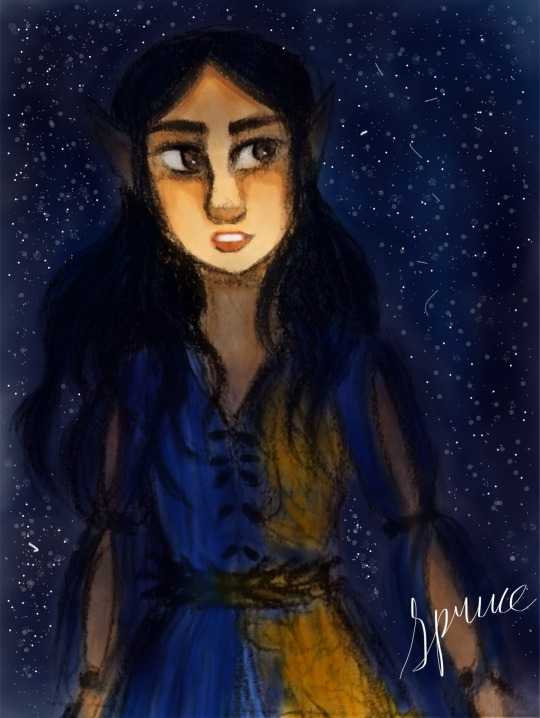
Lúthien
#myart#spruceart#drawing#tolkien fanart#silm art#tolkien#silmarillion#tolkien stuff#luthien#luthien tinuviel#beren and luthien#unfinished tales#silm elves#tolkien elves#lúthien#lúthien tinúviel#lotr elves
63 notes
·
View notes
Note
Could you expand on what Morgoth said about the Valar having harems in Aman??? I’ve never heard that before and whether he’s lying or not that’s wild. Like, was it just something he causally dropped in a generally menacing speech or what, I’m trying to figure out in what context he would even bring that up!
Yeah no problem!
I was half joking about him saying there were harems in Valinor but well, he certainly talks about elves being used by the gods for similar purposes.
Warning: this passage contains sexual harassment and implicit threats of sexual violence. The language is flowery but it’s still in my opinion one of the more disturbing passages from Tolkien, in this regard at least.
From The Lay of Leithan
Of what avail here dost thou deem thy babbling song and foolish laughter? minstrels strong are at my call. Yet I will give it a respite brief, a while to live, alittle while though purchase dear, to Lúthien the fair and clear, a pretty toy for idle hour
In slothful gardens many a flower like thee the amorous gods are used, honey sweet to kiss, and cast then bruised, their fragrance loosing under feet, but here we seldom find such sweet amid our labours long and hard, from godlike idleness debarred
This goes on like this for another few lines before Lúthien interrupts
It’s worth noting that this is not the first time that he makes references to the idle lazy and indulgent atmosphere of Valinor, in Tolkien’s earlier texts. In the Book of Lost Tales part one Morgoth similarly speaks directly to the Valar through their herald, complaining of the brutal labor he must undergo which they are interrupting, accusing them similarly of laziness and decadence.
So yeah something he casually drops in a genuinely menacing speech more or less sums it up in my opinion.
I think he’s probably wrong but I’m actually undecided if he believes himself lying. I could see him truly believing the other Valar partake in this and that he has been cast out from this privilege, or that the other Valar truly treat the elves as he does but are better at papering it over in pretty settings.
On the other hand he could very easily be deliberately painting a cruel and wicked portrait of Valinor and the gods to Lúthien on purpose, he taunts her for being naive earlier in this scene, I can definitely see him spinning this story purely out of malice.

#the silmarillion#the lays of beleriand#morgoth#melkor#Lúthien#in the iron hell#musing and meta#cw abuse#the hidden hours
79 notes
·
View notes